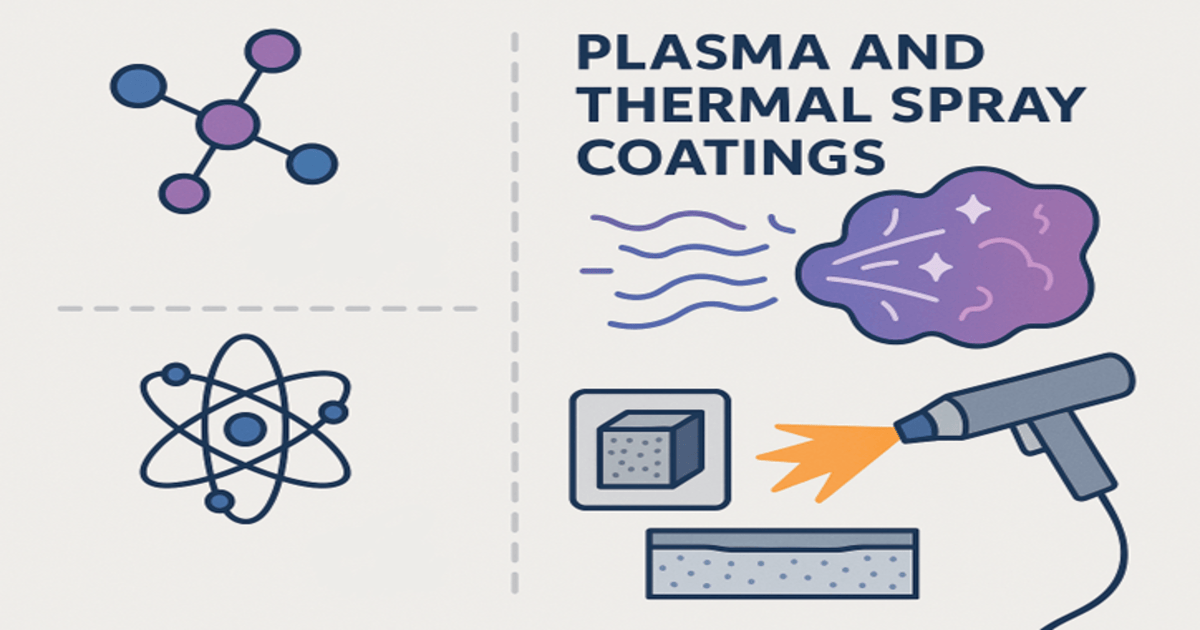Plasma and Thermal Spray Coatings: Challenges, Developments and Future Perspectives
A special issue of Coatings (ISSN 2079-6412). This special issue belongs to the section "Plasma Coatings, Surfaces & Interfaces".
Deadline for manuscript submissions: 15 March 2026 | Viewed by 162

Special Issue Editors
Interests: plasma; PVD; HiPIMS; coatings; thin films
Interests: PVD plasma processes; HiPIMS; microstructures; nanostructuration; structural and functional properties
Special Issue Information
Dear Colleagues,
Protective coatings produced by plasma and thermal spray technologies have become indispensable for enhancing the performance and longevity of materials in a wide range of industrial applications. These processes, which allow for the deposition of high-performance coatings on various substrates, have seen significant advancements, driven by both fundamental research and growing industrial demands. From aerospace to automotive, and energy to manufacturing, the need for coatings that can withstand extreme conditions, including high temperatures, wear, corrosion, and oxidation, has catalyzed remarkable progress in plasma and thermal spray technologies.
The potential of these techniques to create coatings with tailored properties—ranging from high-temperature resistance to improved mechanical strength—has made them central to the development of next-generation protective materials. With a deepened understanding of the underlying mechanisms and continuous innovation in processing methods, plasma and thermal spray technologies are now capable of delivering coatings with exceptional durability and multiple functionalities.
Despite significant advancements, several challenges remain in the field of plasma coatings and thermal spray technologies. Key issues include optimizing process efficiency and material utilization to reduce energy consumption and carbon emissions. Furthermore, the reliance on critical raw materials—such as rare earth elements and strategic metals—raises concerns regarding supply security and environmental impact. Addressing these challenges is essential for aligning these processes with the principles of green technologies, particularly in sectors like renewable energy, aerospace, and clean transportation, where sustainable surface engineering plays a crucial role.
This Special Issue aims to highlight both the fundamental principles and cutting-edge industrial applications of plasma and thermal spray coatings. The scope of the issue encompasses:
- In-depth theoretical and experimental research on the fundamental mechanisms of plasma and thermal spray processes and their influence on coating microstructures and properties.
- Advancements in next-generation coatings produced through plasma and thermal spray technologies, including novel materials, new materials generation (composition, architecture, etc.) and hybrid systems.
- High-performance coatings for extreme environments, focusing on their applications in industries such as aerospace, automotive, energy, and manufacturing.
- Challenges faced in the development and application of plasma and thermal spray coatings, including issues related to process optimization, coating integrity, and performance in demanding conditions.
- Future perspectives on the evolution of these technologies, with an emphasis on emerging trends, new materials, and potential innovations.
This Special Issue serves as a forum for exploring the diverse and evolving landscape of plasma and thermal spray coatings, offering insights into the latest developments, addressing current challenges, and presenting new directions for future research and industrial practice.
Dr. Marjorie Cavarroc-Weimer
Dr. Angéline Poulon-Quintin
Guest Editors
Manuscript Submission Information
Manuscripts should be submitted online at www.mdpi.com by registering and logging in to this website. Once you are registered, click here to go to the submission form. Manuscripts can be submitted until the deadline. All submissions that pass pre-check are peer-reviewed. Accepted papers will be published continuously in the journal (as soon as accepted) and will be listed together on the special issue website. Research articles, review articles as well as short communications are invited. For planned papers, a title and short abstract (about 250 words) can be sent to the Editorial Office for assessment.
Submitted manuscripts should not have been published previously, nor be under consideration for publication elsewhere (except conference proceedings papers). All manuscripts are thoroughly refereed through a single-blind peer-review process. A guide for authors and other relevant information for submission of manuscripts is available on the Instructions for Authors page. Coatings is an international peer-reviewed open access monthly journal published by MDPI.
Please visit the Instructions for Authors page before submitting a manuscript. The Article Processing Charge (APC) for publication in this open access journal is 2600 CHF (Swiss Francs). Submitted papers should be well formatted and use good English. Authors may use MDPI's English editing service prior to publication or during author revisions.
Keywords
- plasma-based PVD deposition processes
- thermal-spray-based deposition processes
- gigh-performance coatings
- environmentally friendly coating processes
- surface engineering
Benefits of Publishing in a Special Issue
- Ease of navigation: Grouping papers by topic helps scholars navigate broad scope journals more efficiently.
- Greater discoverability: Special Issues support the reach and impact of scientific research. Articles in Special Issues are more discoverable and cited more frequently.
- Expansion of research network: Special Issues facilitate connections among authors, fostering scientific collaborations.
- External promotion: Articles in Special Issues are often promoted through the journal's social media, increasing their visibility.
- Reprint: MDPI Books provides the opportunity to republish successful Special Issues in book format, both online and in print.
Further information on MDPI's Special Issue policies can be found here.






